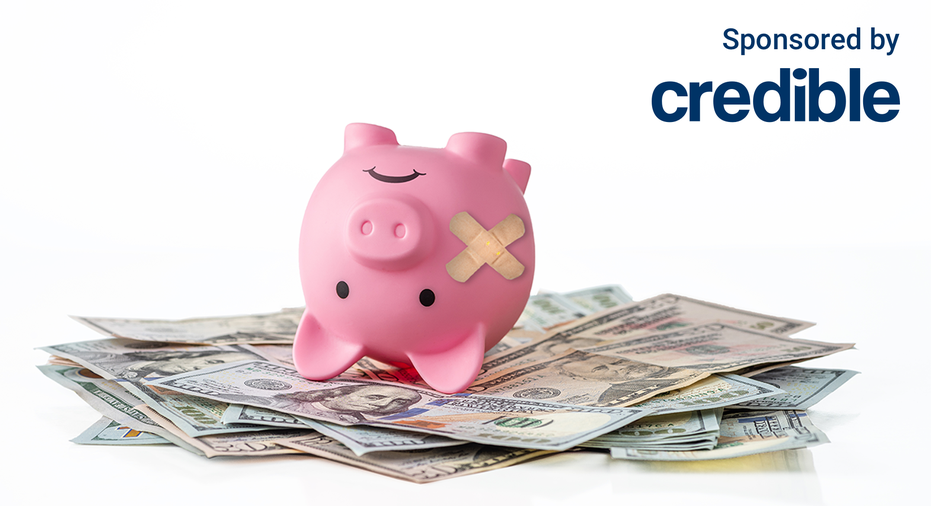Cost is the biggest factor behind why a majority of Americans delay medical care: survey
Building a rainy day fund could help with surprise expenses

Most Americans have delayed healthcare over the past three years, and that could spell increased cost of treatment, a recent survey said. (iStock)
More than half (58%) of employed Americans delayed routine healthcare in the past three years because of cost concerns, a recent survey said.
Additionally, 69% of those putting off care due to cost and insurance barriers, had three or more chronic conditions, compared to 51% with none, according to the survey by Integrated Benefits Institute.
Employers said they understood that delays in treatment could not only make symptoms worse but also increased the complexity and cost of treatment, according to the survey.
"This makes tracking rates of delayed care important for employers, so they can both encourage employees to get the treatment they need, as well as budget for healthcare costs going forward," the survey said.
If you are struggling financially, you could consider paying down your debt with a personal loan. Doing so can help you consolidate your payments at a lower interest rate, saving you money over time. Visit Credible to find your personalized rate without affecting your credit score.
HOMEBUYERS ARE FINDING BETTER DEALS IN THESE CITIES, SURVEY SAYS
Americans aren't saving for emergencies, survey says
Building a rainy day fund is one option Americans could consider to finance surprise expenses like unexpected healthcare costs. Still, inflation and rising costs for everyday expenses like food and gas have made this a challenging task.
A recent survey by SecureSave said that 67% of Americans don't have enough money saved to cover an unexpected $400 expense. Moreover, 54% said their savings decreased over the last year.
"This data is a huge red flag for our country's economy: the overwhelming majority of American households are dangerously unprepared for an emergency expense," SecureSave Cofounder Suze Orman said. "Having money set aside in an emergency savings account is what helps you keep up with the mortgage and car payments if you are laid off.
"It is how you avoid running up crushing high-interest credit card debt," Orman continued. "It is how you avoid feeling the need to raid your retirement savings to cover an emergency expense. It is what makes you less likely to delay health care when there's a deductible and copays to deal with. When families' emergency savings are depleted, it has ripple effects across our economy. We need to take action to help people save during these challenging times."
If you have encountered unexpected, high-interest debt, one option you can consider is using a personal loan to pay it down at a lower interest rate. You can visit Credible to compare multiple personal loan lenders at once and choose the one with the best interest rate for you.
MORE STUDENTS TURNING TO FEDERAL AND PRIVATE STUDENT LOANS TO FINANCE COLLEGE: SURVEY
Employers can help Americans build savings
Americans struggling to put away funds for emergencies could find some help through employer-sponsored savings accounts, according to SecureSave.
Health Saving Accounts (HSAs) allow employees to deposit pre-tax earnings that can be used to cover certain healthcare-related expenses. Employees won't have to pay taxes when they withdraw it to pay for an approved expense. Only those with a high deductible health insurance plan would be eligible to open an HSA.
Another perk HSAs offer is the ability to invest it, SecureSave said in a blog post.
"Once the account balance reaches a specified minimum amount (set by the HSA provider), then the saver can choose to invest it in money market funds, stocks, or other investment opportunities," SecureSave said. "Over time, account-holders can grow their savings."
Employers can also sponsor Emergency Saving Accounts (ESAs) for their employees. Americans can also open these accounts without employee sponsorship. However, as part of an employee benefits package, employers could offer contribution matching or milestone incentive payments for signing up and meeting certain savings goals, according to SecureSave.
If you have accumulated debt, you could consider using a personal loan to help you pay it down at a lower interest rate. Visit Credible to compare multiple personal loan lenders at once and choose the one with the best interest rate for you.
THESE TWO FACTORS COULD BE DRIVING YOUR CAR INSURANCE COSTS UP
Have a finance-related question, but don't know who to ask? Email The Credible Money Expert at moneyexpert@credible.com and your question might be answered by Credible in our Money Expert column.




















